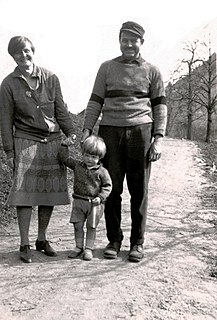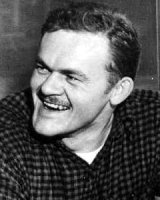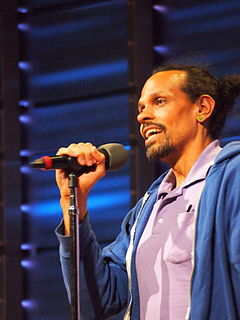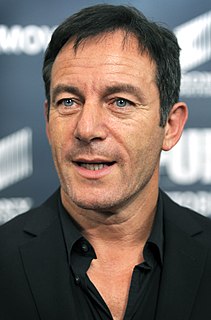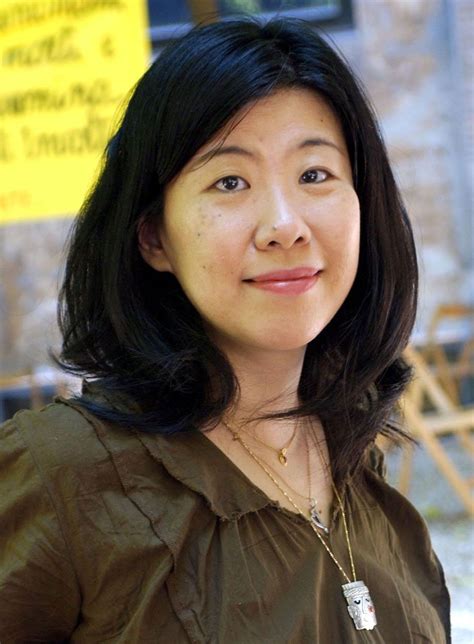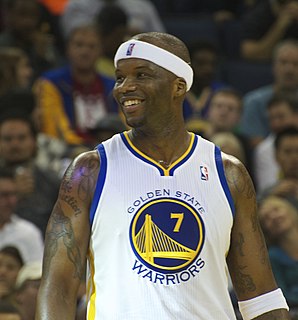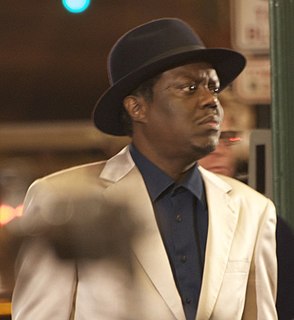A Quote by Jack Hemingway
Frankly I never seriously read my father's books until after he died. Up to then, there had been no point.
Related Quotes
Until I read Anne Frank's diary, I had found books a literal escape from what could be the harsh reality around me. After I read the diary, I had a fresh way of viewing the both literature and the world. From then on, I found I was impatient with books that were not honest or that were trivial and frivolous.
Up until then it had only been himself. Up to then it had been a private wrestle between him and himself. Nobody else much entered into it. After the people came into it he was, of course, a different man. Everything had changed then and he was no longer the virgin, with the virgin's right to insist upon platonic love. Life, in time, takes every maidenhead, even if it has to dry it up; it does not matter how the owner wants to keep it. Up to then he had been the young idealist. But he could not stay there. Not after the other people entered into it.
After my mother died, I learned that she'd had a scholarship to the University of Nebraska, but - in kind of a tradition that females don't do things like that - her father prevented her from going. She always said that she wasn't allowed to go to college, but until she died, I never knew that she'd had this scholarship.
I suppose that it was inevitable that my word-base broadened. I could now for the first time pick up a book and read and now begin to understand what the book was saying. Anyone who has read a great deal can imagine the new world that opened. Let me tell you something: from then until I left that prison, in every free moment I had, if I was not reading in the library, I was reading in my bunk. You couldn’t have gotten me out of my books with a wedge...Months passed without my even thinking about being imprisoned. In fact, up to then, I never had been so truly free in my life.
I am a product of endless books. My father bought all the books he read and never got rid of any of them. There were books in the study, books in the drawing room, books in the cloakroom, books (two deep) in the great bookcase on the landing, books in a bedroom, books piled as high as my shoulder in the cistern attic...In the seemingly endless rainy afternoons I took volume after volume from the shelves. I had always the same certainty of finding a book that was new to me as a man who walks into a field has of finding a new blade of grass.
One's life is more formed, I sometimes think, by books than by human beings: it is out of books one learns about love and pain at second hand. Even if we have the happy chance to fall in love, it is because we have been conditioned by what we have read, and if I had never known love at all, perhaps it was because my father's library had not contained the right books.
I went off and read the books after the audition and I read all four books in one sitting - you know - didn't wash, didn't eat, drove around with them on the steering wheel like a lunatic. I suddenly understood why my friends, who I'd thought where slightly backward, had been so addicted to these children's books. They're like crack.
The bookstore was a parking lot for used graveyards. Thousands of graveyards were parked in rows like cars. Most of the books were out of print, and no one wanted to read them any more and the people who had read the books had died or forgotten about them, but through the organic process of music the books had become virgins again.
For ten years I had been protected, wrapped up in something like a blanket that had been stitched together from all kinds of different things. But people never notice that warmth until after they've emerged. You don't even notice that you've been inside until it's too late for you ever to go back-- that's how perfect the temperature of that blanket is.
I learned hard lessons in life; I had to because I had so much happen: My mother died my sophomore year in high school. The next year, same day, my brother dropped dead. Two years after that, I got married because my girlfriend got pregnant. The year after my wedding, my father - who I had only recently met - died.
Ogbuef Ezedudu,who was the oldest man in the village, was telling two other men when they came to visit him that the punishment for breaking the Peace of Ani had become very mild in their clan. "It has not always been so," he said. "My father told me that he had been told that in the past a man who broke the peace was dragged on the ground through the village until he died. but after a while this custom was stopped because it spoiled the peace which it was meant to preserve.
